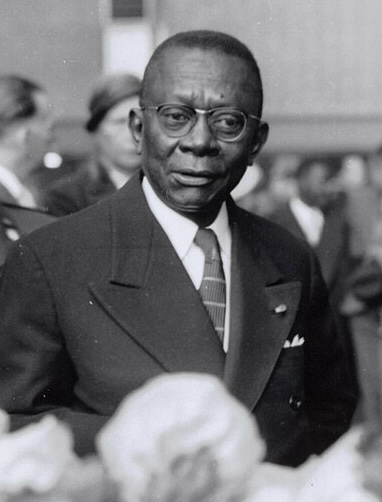Biography
Imagine being the guy who shows up and says, "Hey, let's stop playing small and aim for the big leagues." That’s William Tubman for you—Liberia’s longest-serving president and arguably the man who turned a sleepy country into a regional player (or at least tried to). Think of him as Liberia's version of a startup founder—visionary, controversial, and willing to bet big on his ideas.
The Backstory: From Small Town Boy to "Father of the Nation"
Tubman wasn’t born into power. He came from Harper, a little Liberian town with big dreams. His dad was a Methodist preacher, which probably explains Tubman's knack for making things sound divine—even his policies.
By his 20s, Tubman was a lawyer, and by his 30s, he was knee-deep in politics. People liked him because he wasn’t afraid to challenge the status quo. Imagine someone showing up to your board meeting and saying, “We’ve been doing this all wrong for decades. Let’s shake things up.”
His Big Idea: The Open Door Policy
When Tubman became president in 1944, Liberia wasn’t exactly booming. It was like a small shop with no customers. Tubman’s solution? The Open Door Policy. Essentially, he invited foreign investors to come in and set up shop—rubber companies, mining giants, you name it.
The result? Liberia’s economy exploded, almost like a tiny startup landing a major VC deal. Suddenly, the country was in the conversation about African development. But here’s the twist: with great growth came great inequality. Most of the wealth went to the elites, leaving ordinary Liberians wondering if they’d accidentally signed up for a bad deal.
The Charm Offensive
Here’s where Tubman’s charisma comes in. The man was a showman. He loved parades, ceremonies, and shaking hands with world leaders. He once said, “A leader must look the part.” And boy, did he lean into that.
He wasn’t just about optics, though. Tubman pushed for African unity, long before it became trendy. He even helped lay the groundwork for the Organization of African Unity (OAU), which later evolved into the African Union.
The Double-Edged Sword of Leadership
Tubman’s reign lasted 27 years—longer than some people’s entire careers. That longevity was a blessing and a curse. On the one hand, it gave Liberia stability. On the other, it turned Tubman into a semi-autocrat. Think of it like a CEO who refuses to step down even when the company culture starts to crack.
By the time Tubman passed away in 1971, Liberia was a mixed bag—economically stronger but socially divided. His successors inherited a country grappling with big questions about equity and identity.
Why Tubman Still Matters
Tubman’s story isn’t just about Liberia; it’s about leadership and legacy. He reminds us that big ideas can change the game, but they always come with trade-offs. Was he a visionary or a man who overstayed his welcome? Probably both.
If Tubman were alive today, he’d be the guy giving TED Talks about scaling nations and navigating criticism. Love him or hate him, you can’t ignore him. That’s the mark of a true leader.
Join the Lughayangu Community!

